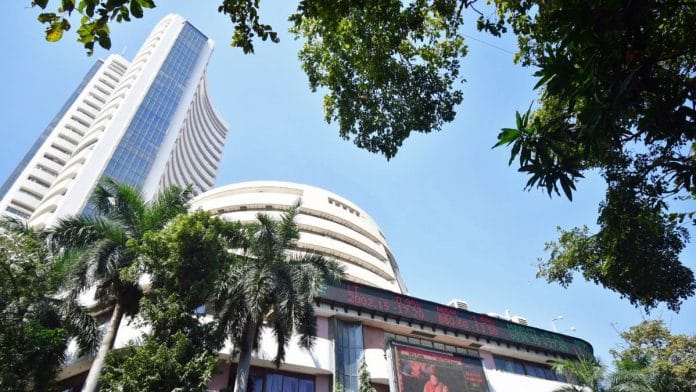Since Independence, the Indian government has taken on the persona of a protective parent to the Indian earner. This includes paternalistic policies such as forcing them to save and discouraging them from spending on demerit goods through ‘sin’ taxes. Over time, even in the transactional economy, the focus has shifted from ‘buyer beware’ to ‘seller beware’.
Protection from unscrupulous actors is one thing, but the government and regulators should now extricate themselves from the trap of protecting the Indian public—and investors in particular—from themselves. Losses due to deliberate malpractice are different from those arising out of genuine market forces. Protecting investors from the latter will only stunt their growth and acumen.
Back in the early 1950s, when the country was young and its public inexperienced, the government deemed it a good idea to introduce the concept of forced savings towards a rainy day or retirement. The Employees’ Provident Fund was officially put in place in 1952. A portion of every formal sector employee’s salary was mandatorily set aside for this fund.
The ostensible idea was that this was for the employees’ own good. That is, the government took the nanny-like step to ensure that people didn’t blow up all their money in the present, and instead saved some for the future. The policy thinking was also driven by a strong Left bias at the time.
This paternalistic and protective attitude rose to a height during the 1970s and early 1980s. This was the period that saw the marginal tax rate climb higher than 90 per cent and India’s banks being nationalised. Of course, the major drivers of these decisions were different, but there was the underlying current of: ‘we know what to do with your money better than you do, and we’ll protect you from the private sector’.
In 1986, the government came up with the Consumer Protection Act, which was a big step away from caveat emptor (or ‘let the buyer beware’) and towards caveat venditor (‘let the seller beware’). Basically, the onus of fraudulent transactions or sub-par quality was shifted to the seller from the buyer.
This, in itself, was the correct step to take. Just a few years later, the economy was opened up through liberalisation to the private sector and foreign investment. Legal protections for consumers were necessary in the face of this sudden expanded exposure to the profit motive.
Since then, consumer protection has only been strengthened. Quality standards have been implemented, consumer courts established, and grievance redressal portals set up. The Consumer Protection Act itself was updated in 2019. This is as it should be.
Also read: Indian govt has a physics problem—time travelling to change tax laws will hurt business
Learn from mistakes
A key distinction needs to be made as we come to the present. There is a difference between protecting an investor from unscrupulous external action and protecting them from themselves. The former is necessary, but as the economy matures, the latter should be avoided. That is, protect people from deliberate malpractice, but let them make their own mistakes.
Let’s take the example of the options market in India. Over the last few months, there has been much consternation on the part of regulators and commentators about the money being lost by retail investors in this segment. The overwhelming belief is that these investors don’t know what they are doing, and so are at the mercy of traders who use sophisticated algorithms to make profits.
One of the proposals by SEBI to curb this was to increase the minimum size of an options contract. The idea was that people who couldn’t afford that higher contract size would automatically be weeded out. This is the kind of thinking that should be avoided.
Yes, people are losing money in such contracts, but there’s no better teacher than this kind of loss. As the Indian economy and its markets mature, these things will settle down. Artificial limits should make way for natural ones. Those who don’t know how the options market works will—dissuaded by consistent losses—eventually stop trading in this segment.
There will be pain, but the end result will be a more aware and stronger investor base, rather than an unaware and oblivious one.
Similarly, last week’s news of a small bike dealership going for a modest IPO and attracting incredible investor interest also encouraged some commentators to call for curbs. SEBI should resist succumbing to this pressure. The company in question made all kinds of serious disclosures in its pre-IPO documents. If investors ignore these, that’s on them.
Incidentally, there is one industry that seems to lie outside this paternalistic framework—cryptocurrencies. Here, companies can conduct fraud or be hit by hackers leading to crores of losses for people, but the government has so far refused to step in with any sort of regulatory or redressal mechanism.
This is, of course, the other extreme and needs to be addressed. Regulation should exist. But once it does, the freedom to invest in whichever crypto exchange or asset, and how much, should lie with the crypto purchaser.
While we are at it, it’s also a good time to do away with the compulsory nature of EPF. Formal sector employees should be allowed access to 100 per cent of their post-tax income, and have the freedom to choose what they do with it.
Let’s put it this way: the Indian saver and investor need a protective parent but not a coddling nanny. Otherwise, they simply will not learn.
TCA Sharad Raghavan is Deputy Editor – Economy at ThePrint. He tweets @SharadRaghavan. Views are personal.
(Edited by Theres Sudeep)






